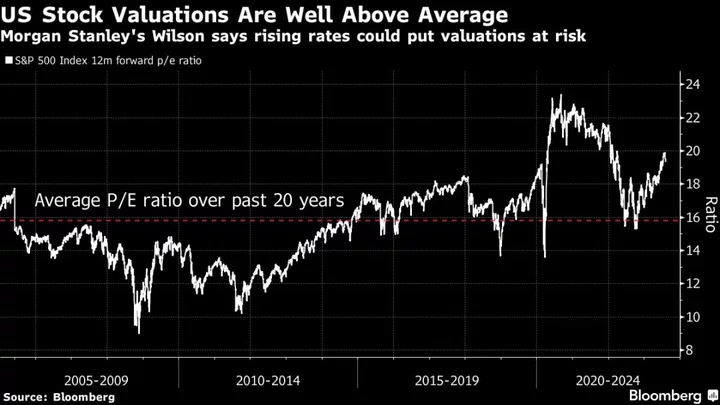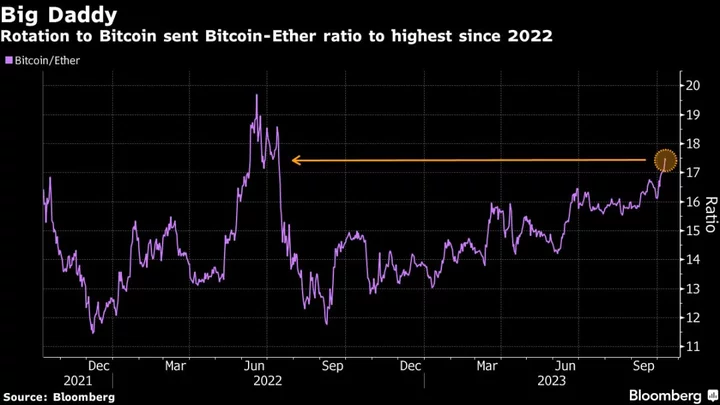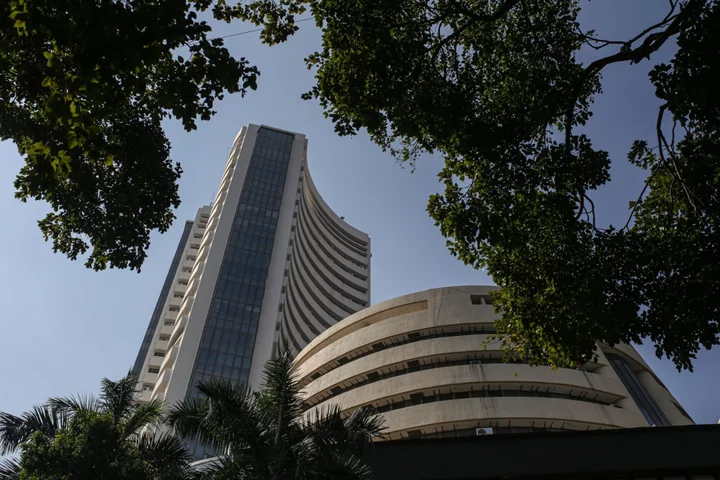Warning bells are ringing for US stocks from signs that high government spending, which underpinned economic growth this year, is unsustainable, according to Morgan Stanley’s Michael Wilson.
The bank’s chief US equity strategist — one of the most bearish voices on Wall Street — said that Fitch Ratings’ downgrade of US government debt last week and the ensuing selloff in the bond market suggests that “investors should be ready for potential disappointment” on economic and earnings growth.
Wilson recently acknowledged that his pessimistic view for 2023 has been wrong as stock valuations soared. In his weekly note to clients Monday, he attributed this year’s equity rally to fiscal policy that has allowed the economy to grow faster than forecast. The US has rarely ever seen such large deficits when the unemployment rate is so low, he added.
“I don’t think we’ve hit a wall completely here, but I think it’s fair to say that the fiscal impulse that we’ve experienced over the last 12 months has caught a lot of people off guard — including ourselves — and it has really kept the economy going in a way that most people were not projecting,” Wilson said in an interview with Bloomberg television. “And that has led people to believe that this can continue.”
Fitch’s downgrade reflected the limits of loose fiscal policy, while growth has also been helped by a widening of the federal government’s budget deficit and legislation championed by President Joe Biden to increase spending on infrastructure, the green economy and semiconductor manufacturing. If spending is curtailed due to higher political or funding costs, “the unfinished earnings decline that began last year has further to fall,” putting pressure on company sales growth, Wilson wrote.
US stocks rebounded Monday after tumbling last week amid spiking bond yields. The S&P 500 Index has rallied roughly 17% this year as investors focused on cooling inflation and resilient economic data rather than a drop in corporate earnings.
While economists have broadly pared back expectations for a US recession, strategists such as Bank of America Corp.’s Michael Hartnett have warned that the possibility of a contraction remains high as the Federal Reserve tightens credit conditions. Risks to corporate earnings are also lingering, with the strategy team at JPMorgan Chase & Co. saying deteriorating economic activity is challenging analysts’ projections that a profit recession would end in the third quarter.
“I don’t think we need a full-blown recession, but I am pretty convinced growth is slowing,” Wilson said on Bloomberg Television Monday. “We are in a down cycle.”
--With assistance from Farah Elbahrawy.
(Updates with Wilson’s remarks in Bloomberg Television interview.)









